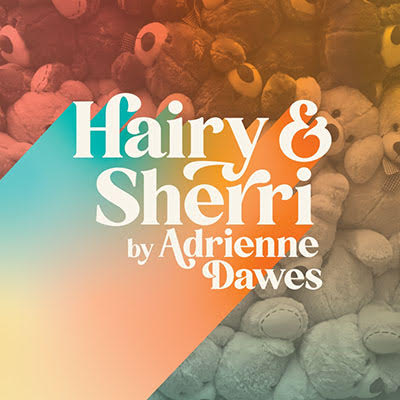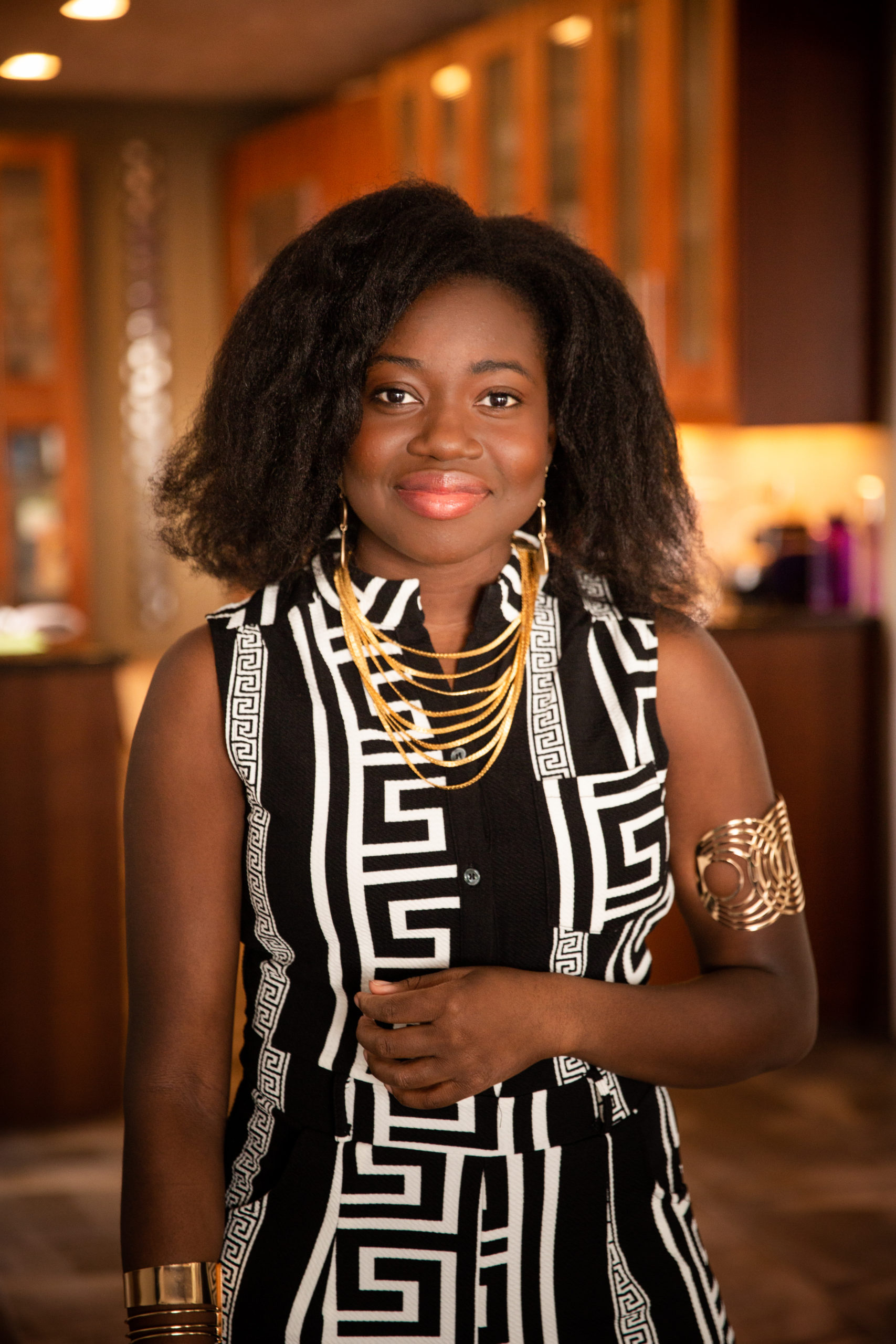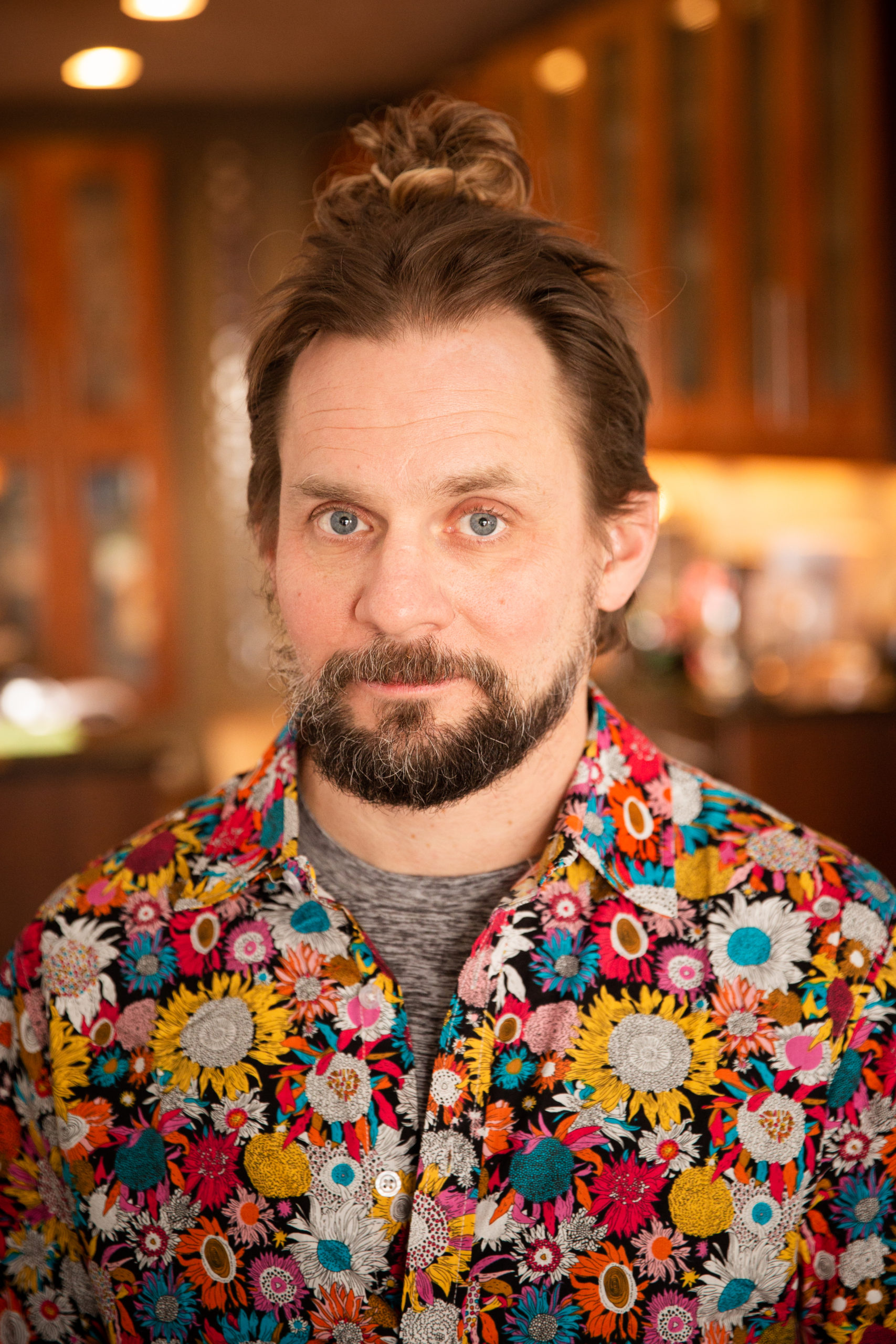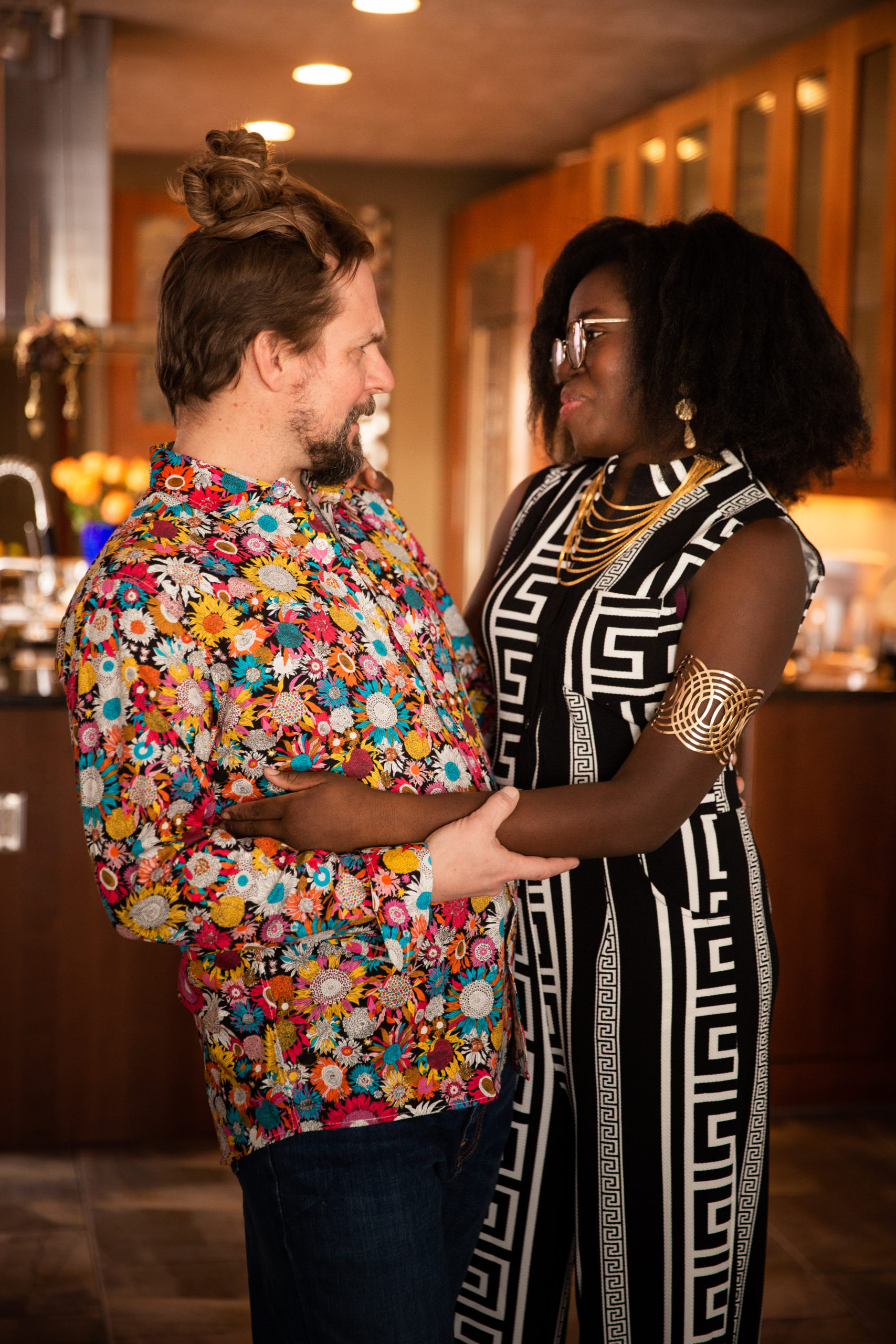SALT LAKE CITY — In her program note, Texas-based playwright Adrienne Dawes recounts her own experience growing up in a home that hosted children in foster care as the inspiration for her play Hairy and Sherri. Dawes states, “I wanted to tell a story that examines the failures of this country’s foster care system . . .” And she has.

The action centers on a young, affluent, biracial couple, Harold and Sharon, in Austin, Texas, who decide to start their family by adopting a foster child. After searching an all-too-real web site with profiles of thousands of children waiting to be adopted, Sherri is quickly drawn to a high-needs, 12 year-old Black boy, Ryshi, who is reminiscent of her own younger brother. Dawes’s play exposes the harsh realities of flawed humans trying to do what is right for the innocent children trapped between the rock of generational poverty and trauma and the hard place of a critically underfunded, unstable child welfare system.
Before they can bring Ryshi into their family, Hairy and Sherry must win over Ryshi’s case worker, Vera. In this pivotal role, Yolanda Stange (whom I praised last year in Plan B’s Aftershock) continues to impress as Vera. Here, playing a 30-year veteran of the child welfare system, Stange delivers all the frustration, pathos, and authority the character needs. Her care for Ryshi is evident, and her grim determination to make the best of every bad situation is so clear that one can easily imagine Stange has had an alternate career as a social worker.

In a interesting move, Ryshi is played by two actors, Devin Losser and Kiirt Banks. Losser is billed as “Ryshi Only” and has a young face and wears glasses that give him a boyish quality. This is the Ryshi the audience sees in Vera’s office and when he is alone with Sherri. Banks, billed as “Ryshi Speyer,” is somewhat taller, with a more mature build and face than Losser. This is the Ryshi whom Hairy sees walk in his front door. The dual casting is also helpful in a scene where Ryshi, who experiences verbal impairments, talks to himself during a difficult moment.
As I saw the show opening night, I had a chance to ask the director, Vickie Washington, about this choice, and she clarified that having two actors for the role, one who is physically larger than a typical 12-year-old, is specified by Dawes’s script. The purpose of this specifically to show the audience the difference between how white Hairy sees Ryshi, compared to the child he actually is. While I applaud this innovative effort to demonstrate the very real racial biases that impacts Black children, I think the execution could have been clearer if the two actors were less physically similar in size, or if there has been a clearer way to introduce the conceit. However, both actors are excellent in their the role as a boy who has endured far too much for one short life.

Husband and wife Hairy and Sherri, performed by David Knoell and Wendy Joe (respectively), are also laudable in their roles. Though they love one another, each is wrestling with their own childhood traumas — making both unable to communicate their needs and desires in healthy ways. Dawes has written powerful moments connecting all these characters, but I felt disappointed when Sherri’s backstory made the character’s choices a little hard to reconcile. This is no fault of Joe’s, and her comfort with working an audience does get a moment to shine in an odd, but fun scene: Sherri, an entrepreneurial minded jewelry maker, speaks directly to the audience, as if she is performing for a large business conference in celebration of her success. Knoell (who gave a favorite performance of mine in last year’s Fringe Festival), here gives us a full-bodied performance as the high spirited, loving — but ultimately lost — Hairy.
Washington has also made some fascinating movement choices to show moments of high emotion between the couple, and for Sherri. I would have liked to see this stylistic choice be used with even more throughout the production. Michael Horesji’s scenic design is more than serviceable at evoking the few locations required for the action. Hairy and Sherri’s home is as trendy and welcoming as Vera’s office is bland and austere. I appreciate the attention to small details in the set, costumes (designed by Nancy Hills), and prop executions (by Erik Reichert) that worked together seamlessly to tell this story.

The play was developed as part of the Salt Lake Acting Company’s Digital New Play Sounding Series 2021 festival. With a new play, it can be difficult to parse production choices from the playwright’s vision, but it seems clear that Dawes was met with a topnotch creative team to bring her script about an important and difficult topic to Utah audiences. On a personal note, as a Utah CASA who volunteers with children in foster care, I am especially grateful for light this production is shining on the children and foster families who need attention, supports and activism. I applaud Salt Lake Acting Company for dedicating their efforts to this worthwhile production.
[box]Hairy and Sherri plays Wednesdays through Saturdays at 7:30 PM, Saturdays at 2 PM, and Sundays at 1 PM and 6 PM through March 5 (with an additional performance on Tuesday, February 21 at 7:30 PM) at the Salt Lake Acting Company (168 West 500 North, Salt Lake City). Tickets are $41-44. For more information, visit saltlakeactingcompany.org.[/box]

